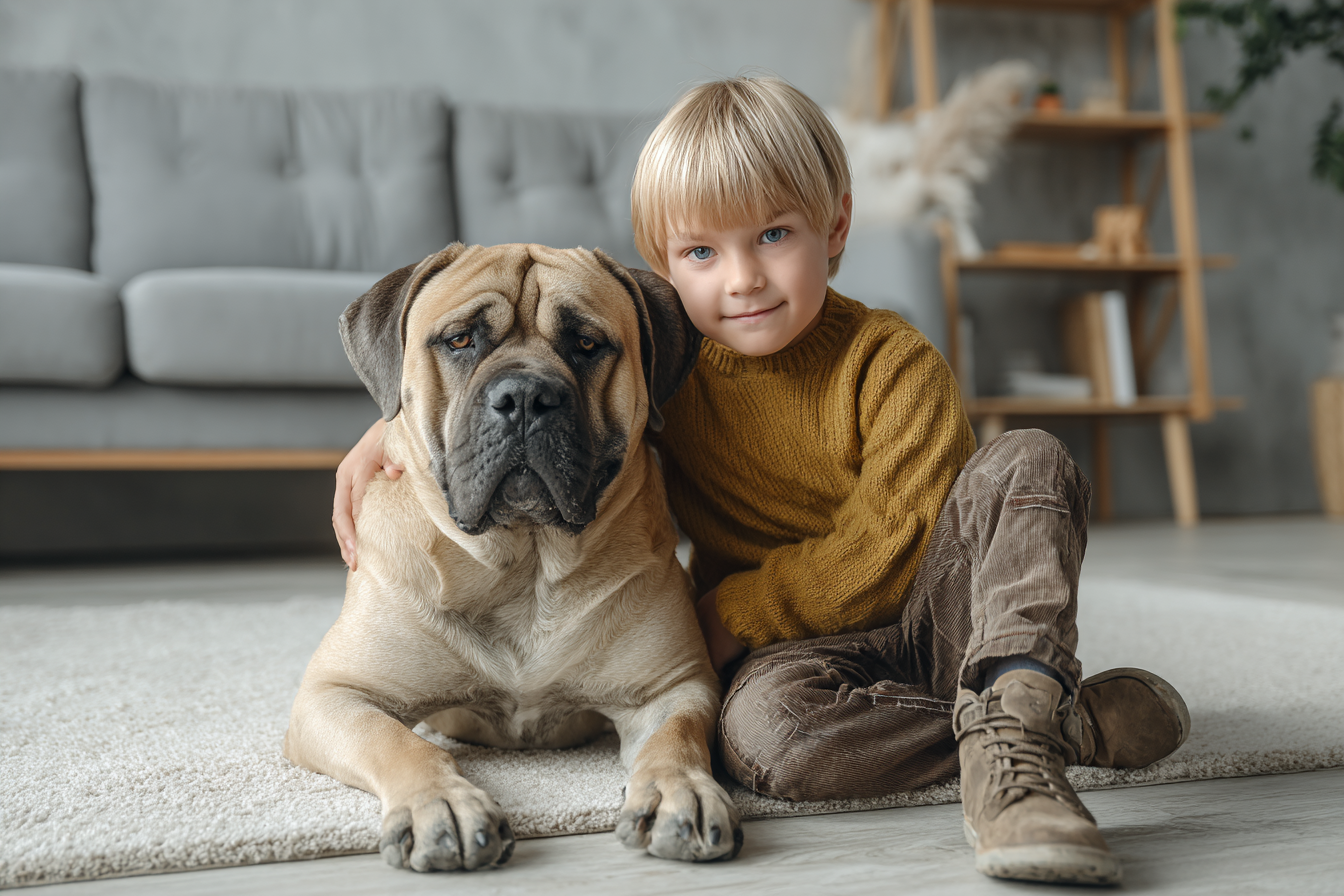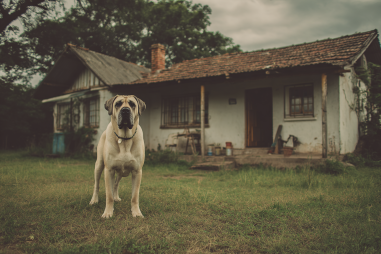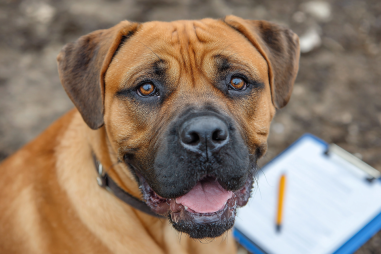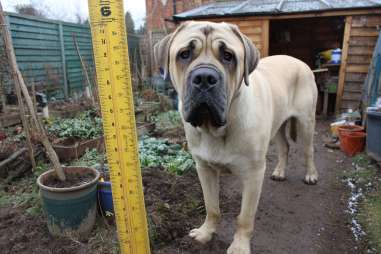When considering a new addition to your family, choosing the right dog breed is essential. Boerboels, often referred to as South African Mastiffs, are known for their impressive size, strong protective instincts, and loyal temperament. But are Boerboels suitable as family dogs? While they have many qualities that make them excellent companions, potential owners need to understand the breed’s characteristics, especially when kids are involved. This guide will walk you through what makes Boerboels great family pets and what precautions and preparations you should keep in mind.
Traits That Make Boerboels Good Family Dogs
Boerboels have several attributes that contribute to their reputation as loyal, loving family dogs. One of the standout qualities is their deep attachment to their family members. These dogs thrive on companionship and tend to form strong bonds with their owners, making them affectionate and devoted pets. Despite their size, many Boerboels have a gentle nature and a calm demeanor around those they trust.
Another important trait is their intelligence. Boerboels are quick learners and respond well to training when approached with consistency and patience. Their alertness and natural guarding instincts mean they’re always attentive and protective of their home and loved ones. This combination of intelligence, loyalty, and protectiveness often makes Boerboels reliable watchdogs while maintaining a warm presence within the household.
Physically, these dogs are robust and muscular, indicative of their original use as working dogs on farms. They require ample exercise and mental stimulation to stay healthy, so families who enjoy outdoor activities and have a secure yard are usually a good match for the breed.
Considerations for Households With Children
Many families want to know how Boerboels interact with children, and the answer depends largely on the individual dog’s temperament and the family’s approach to introducing the dog to kids. Boerboels are known for their protective nature, which can translate well into being gentle with children when socialized properly from a young age.
However, their sheer size and strength mean supervision is crucial, especially around young or very small children. Accidental injuries can occur simply due to the dog’s power, even if the Boerboel means no harm. Teaching children how to respectfully interact with the dog, understanding canine body language, and reinforcing boundaries can help prevent problems.
Additionally, some Boerboels may exhibit territorial behaviors that could be challenging in busy homes or with frequent visitors. Families should be prepared to invest time in training and socializing their dog to help it feel comfortable and calm around unfamiliar people and lively children.
Managing Boerboel Protective Instincts
One of the defining characteristics of Boerboels is their strong protective instinct. Historically bred as guard dogs for farms and homesteads, they have a natural inclination to protect their family and property. While this trait is an asset, it can also require careful management.
Early and ongoing socialization is key to managing these instincts appropriately. Exposing your Boerboel puppy or new adult dog to a variety of people, situations, sounds, and environments within a structured and positive context helps them learn when and how to be protective without becoming overly aggressive or fearful.
If protective behavior becomes excessive, such as growling or lunging at visitors without clear cause, professional help from a qualified dog trainer or behaviorist may be necessary. Proper training helps teach your Boerboel to distinguish between normal daily situations and genuine threats, ensuring your home remains safe and welcoming.
Training and Socialization for Family Life
Boerboels respond best to firm, consistent, and positive training methods. Their intelligence makes training rewarding when it’s clear and fair, but their independent streak means they do not respond well to harsh treatment or inconsistent rules.
Basic obedience training should start early and focus on commands such as sit, stay, come, and heel. These fundamentals ensure safety and control, especially given the dog’s size and strength. Incorporating socialization throughout puppyhood and beyond is equally important. Introducing your Boerboel to other dogs, different types of people, and various environments builds confidence and reduces the likelihood of anxiety or aggression.
Because Boerboels are energetic dogs with a working background, they also benefit from mental challenges and physical exercise. Puzzle toys, agility activities, and daily walks or playtime help burn off energy and keep your dog happy and well-behaved in a family setting.
Preparing Your Home and Family
Welcoming a Boerboel into your home involves thoughtful preparation. Here are some key steps to consider:
- Space: Ensure you have enough room for a large dog to move comfortably. Boerboels are not typically suited for small apartments due to their size and activity needs.
- Secure Yard: A securely fenced yard is ideal, giving your dog a safe space to roam and play. The fencing should be tall and sturdy to prevent escapes.
- Rules and Boundaries: Establish clear household rules from the start, such as where the dog is allowed to go and how interactions with family members will work.
- Family Involvement: Ensure everyone in the family is on board and educated about the breed’s needs, training, and supervision requirements.
- Veterinary Care: Have a trusted vet knowledgeable about large breeds to provide regular checkups and advice on nutrition and health care.
Introducing your Boerboel to family routines gradually, providing consistent training sessions, and reinforcing positive behaviors will help integrate this breed into a happy home environment.
Finding the Right Fit for Your Family
Boerboels can be wonderful family dogs when matched to the right lifestyle and prepared for with realistic expectations. Their loyalty, intelligence, and loving nature make them exceptional companions. Yet, their large size, protective tendencies, and exercise demands mean they aren’t the best choice for every family.
If your household can provide proper training, socialization, supervision, and a safe environment, a Boerboel can thrive as a family member. They can offer unmatched protection and affection in return, making all the efforts more than worthwhile.
By taking the time to understand your Boerboel’s needs and rightsizing your expectations, you can ensure a harmonious and rewarding relationship with your dog that lasts for many years.







